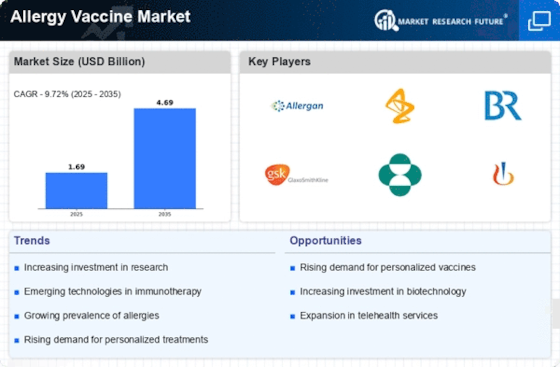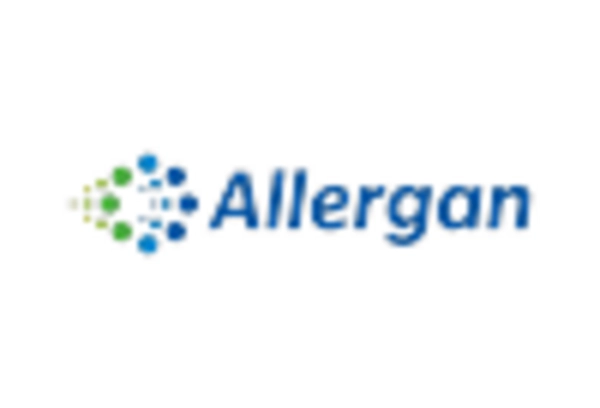Market Trends
Key Emerging Trends in the Allergy Vaccine Market
The allergy vaccine market is witnessing a surge in demand due to the escalating global prevalence of allergies. With environmental changes, lifestyle shifts, and increased awareness, more individuals are seeking effective solutions to manage allergic reactions. One of the peculiar trend emerging from the recent state of the market is the introduction of sophisticated medical technology into the design and development of allergy vaccines. New inventions in the area of precision medicine, molecular biology methods and personalized immunotherapy work for risk management of allergies, and make health care providers and patients to use these treatments. Pharmaceuticals companies is focused on attracting a lot of money in research and development in order to build powerful and specialized allergy vaccines. Thus, there is a great increase in research and development whose major role is in bring forth a variety of alternative medicines. This expands the market and thus offers varied solutions to a wide range of allergic problems. The individualised (personalised) or tailored immunotherapy is a big part of why the allergy vaccine market follows this direction. The personalization of treatments by specific patient profiles and particular allergens will ensure a greater level of precision and efficacy. Consequently, immunotherapy will provide better patient results that will in turn increase market adoption Subcutaneous treatment, given through under the tongue, is rapidly become a popular substitute for traditional allergy shots; it is often referred to as a simple, less invasive therapy. This way of treatment not only boost up patients' compliance but also attracted bunches of customers who tend to try this procedure as it is less intrusive. A pattern is seen with companies competing in the allergy vaccine market entering into strategic cooperations and alliances to leverage their partners’ and their own strengths, share knowledge, and complete the process of introducing allergy vaccines products much faster. To this effect, the intent to create a more competitive and diverse marketplace has been fully achieved. A surge in public awareness regarding the benefits of allergy vaccines is positively impacting market growth. Education campaigns by healthcare organizations and pharmaceutical companies are demystifying immunotherapy, encouraging individuals to seek preventive measures rather than relying solely on symptomatic relief. Despite the positive trends, challenges persist in terms of market penetration. Limited accessibility, high costs, and concerns about the safety and efficacy of allergy vaccines are hindering widespread adoption. Overcoming these barriers will be crucial for sustained market growth.


















Leave a Comment